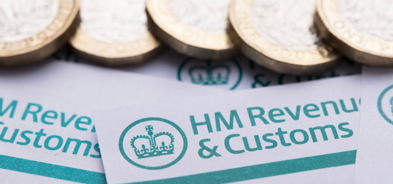How to find a good financial adviser
A good financial adviser is like gold dust. Like your most influential teacher at school they will inspire you to achieve greater things, and enjoy a better future.
Written by Nick Reeves
Published on 01 Aug 20143 minute read
A poor adviser will sell you a product you don't really need and have no interest in your future. It's about them. Their ego, their sale.
Quite a difference. Certainly a big difference in outcome. And that matters because when you eventually come to live off your savings your future will be determined by the size of your assets.
Yet both advisers will be FCA registered, both have at least a Level 4 qualification (it is now the minimum standard to trade), and both will sound plausible. So how do you select the right adviser for you?
The right qualifications
Firstly qualifications. You want an adviser who takes professional knowledge and development seriously. Look for an adviser who is a Chartered Financial Planner or a Certified Financial Planner – or ideally both. These are Level 6 qualifications – equivalent to a university degree.
A Certified Financial Planner has passed a rigorous case study, which tests the application of technical knowledge in a complex scenario and is likely to follow the internationally acknowledged ‘Six steps to financial planning’ determined by the Institute of Financial Planning.
A clear plan
A good adviser will take you on a journey, ask challenging questions and map out a plan to achieve your goals. If you do not have any clear objectives how will you know where to head, and what's important to you?
A good adviser will spend a considerable time listening to you and asking smart questions to help you define your short, medium, and long-term objectives, to determine your desired future lifestyle. They will then translate your goals into a future level of expenditure.
With information from the cashflow model the adviser will create a financial plan to meet your objectives ensuring that account is taken of tax-efficient planning such as pensions, and considering estate planning too, if that is a priority.
The importance of cashflow modelling
The adviser will gather information on your existing financial position. Better advisers will use cashflow modelling to assist in creating the plan.
Cashflow modelling takes your existing financial position and projects forward for the rest of your life, usually modelling to age 100. The model provides a simple-to-read chart of your whole financial position and based on the assumptions it can help to determine if you are likely to have sufficient assets to live your desired lifestyle, whether you have enough money to give some assets away, and what level of investment return you need to take.
A financial plan is a living plan. We can be pretty certain that events won’t turn out exactly as the plan and your adviser will review and update the plan on a regular basis.
Relationships count
So while qualifications and the planning approach are really important so is your relationship with your adviser. They will become an important professional person in your life so it is important that you get on well. Whilst it is not possible to provide much guidance here I think it is helpful to ask yourself whether the adviser really cares about you, and genuinely wants you to reach your goals, and is willing and able to challenge you along the way.
It is helpful to ask an adviser what his existing clients are like and whether he or she has any particular areas of expertise. You don’t want your adviser to practice on you!
And finally fees
A good adviser is a professional person and will charge a fee for services. Fees should be open, transparent and fair. You should feel you are getting a good value for money. But given that a good adviser could make a difference of many thousands of pounds to your financial position over time I suggest that you base your decision primarily on qualifications, approach, and relationship as opposed to price.
Good luck!
Get insights and events via email
Receive the latest updates straight to your inbox.
You may also like…


Investing
What the Autumn Budget capital gains tax changes mean for investors

Investing



